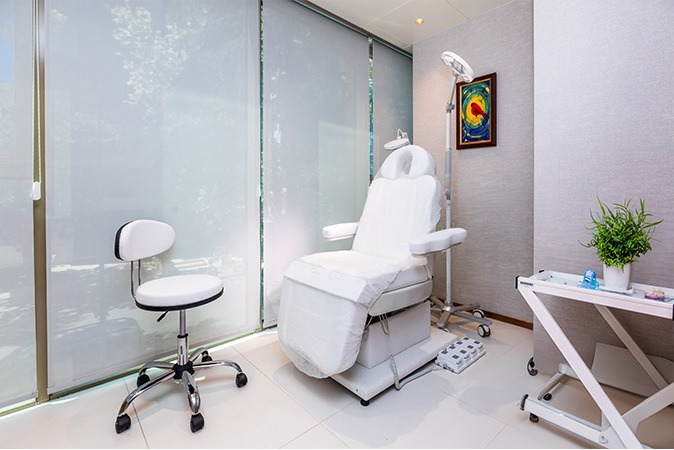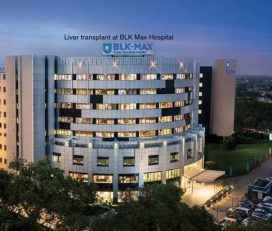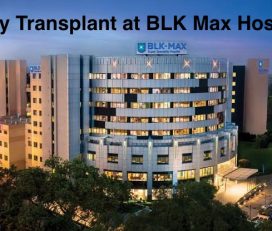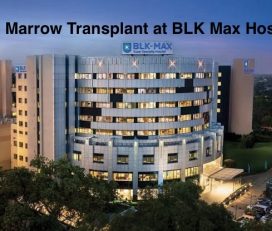
Colorectal Surgery in Kenya
Are you not sure which colorectal surgery in Kenya will be best suitable for your medical condition, or do you want to know about the colorectal surgery cost in Kenya for treatment? Discover more about the choices for colon treatments and colorectal surgery in Kenya. There were 1,354 assessed new cases and 937 deaths from colorectal cancer in recent years in Kenya, while colorectal cancer did not show any symptoms in the initial stages.
There are possibly more cases and deaths from colorectal cancer that were not stated or diagnosed. Colorectal cancer is the top ten cancer in Kenya. The best hospitals in Kenya have expert surgical teams and colon specialists who provide the highest level of all-inclusive surgical care to individuals, safeguarding every individual health needs. The hospitals have world-class care and know-how that is reasonable and accommodating for colorectal surgery in Kenya. Hospitals for colorectal surgery in Kenya serve the healthcare needs of patients traveling from other locations at a meager price.
Efforts and resources have been put into other colon cancer treatments. They should put similar efforts into colon treatments, including regular screening for early diagnosis, treatments, and colorectal surgery in Kenya. At expertchikitsa.com, you can explore the best treatments for colorectal surgery in Kenya and browse the colorectal surgery cost in Kenya according to your medical conditions.
Colorectal Surgery Cost in Kenya
The Colorectal Surgery Cost in Kenya depends on the types and stage of disease and what procedure and hospital opted. The colorectal test costs between Sh8,500 in public and Sh40,000 in private hospitals, while other hospitals’ price is Sh25,000 in Kenya.
The fecal immunochemical test, a screening test for colorectal cancer, costs Sh2,749 in private laboratories in Kenya and should do it yearly. The colorectal surgery cost in Kenya may vary from hospital to hospital. The blood test costing Sh100,000 can detect colon cancers that are hard to find, whereas some are at stage zero when no symptoms are seen.
Colorectal Surgery Cost in Kenya
| Colorectal Surgery in Kenya | Average cost in USD | Average Cost in Kenya Shilling (KES) |
| Abdominoperineal | $2,500 | Ksh 300,000 |
| Anal Abscess Drainage | $2,000 | Ksh 240,000 |
| Anal Cyst Removal | $4,000 | Ksh 480,000 |
| Anal Fissure | $2,500 | Ksh 300,000 |
| Anal Fistula Surgery | $3,000 | Ksh 360,000 |
| Anal Sphincter Repair | $2,800 | Ksh 336,000 |
| Hemorrhoidectomy | $3,800 | Ksh 456,000 |
| Lower Anterior Resection | $3,200 | Ksh 384,000 |
| Rectoscopy | $2,000 | Ksh 240,000 |
| Rubber Band Ligation for Hemorrhoids | $4,500 | Ksh 540,000 |
| Small Bowel Resection | $3,200 | Ksh 384,000 |
| Stapled Hemorrhoidectomy | $3,800 | Ksh 456,000 |
What is Colorectal Surgery?
Colorectal surgery is an area in medicine dealing with conditions of the rectum, anus, and colon. Cancer that starts in the colon is known as colon cancer, whereas cancer in the rectum is called rectal cancer. Cancers that affect both of these organs are termed colorectal cancer.
Colon and rectal surgeries are usually performed to cure colon and rectal cancers, inflammatory bowel disease (IBD), or diverticulitis, and to treat the following conditions an injury or wound, severe infection, or bowel blockage.
Who are Colorectal Surgeons?
Colorectal surgeons are experts in their field, engaging in the physiology of the lower digestive tract.
They treat various types of gastrointestinal conditions and specialize in:
- Colon, rectal cancer and colon polyps
- Inflammatory bowel disease (IBS), Crohn’s disease, and ulcerative colitis
- Diverticulitis and diverticular disease
- Anal problems like hemorrhoids, fistula, and fissure
- Motion problems of the colon, like constipation
Types of Colorectal Surgery in Kenya
-Abdominoperineal: An abdominoperineal resection (APR) is a surgery where the anus, rectum, and sigmoid colon are removed. This process is used to cure rectal cancers situated very low in the rectum. APR surgery is performed after completing the radiation and chemotherapy treatments. Abdominoperineal Resection surgery cost in Kenya is Ksh 300,000 and $2,500.
-Anal Abscess Drainage: An anal abscess is a painful state in which the pus gathers and grows near the anus. Most anal abscesses are caused by infection from small anal glands, and the most commonly occurring abscess is perianal. Surgical incision and drainage are the best cure for all anal abscesses and are generally successful. Anal abscess drainage surgery cost in Kenya is Ksh 240,000($2,000).
-Anal Cyst Removal: An anal fistula is a tiny hole that joints an abscess, a diseased hollow in the anus, to a way in the skin near the anus. Surgery is the most common treatment to cure an anal fistula. Anal cyst removal surgery in Kenya is Ksh 480,000 while $4,000.
-Anal Fissure: An anal fissure is a tiny slit in the thin, moist tissue (mucosa) that covers the anus. An anal fissure may happen when you pass dense solid or big stools through a bowel movement. Anal fissures generally give rise to pain and bleeding with bowel movements. In addition, patients may suffer cramps in the ring of muscle at the end point of the anus (anal sphincter). It mainly occurs in young infants but can affect any age of individuals. Most anal fissures are treated with increased fiber consumption or sitz baths. While very few individuals required medication or, rarely, surgery. Anal fissure surgery cost in Kenya is Ksh 300,000($2,500).
-Anal Fistula Surgery: An anal fistula is a tiny passage that links a diseased gland in the anus that is open in the skin near the anus. Signs of an anal fistula are pain and inflammation around the anus. The reason for an anal fistula is clogged anal glands and anal abscesses. Around half of these abscesses may grow into a fistula. The treatment for anal fistula is fistula surgery, fistulotomy, seton techniques, advancement flap procedure, ligation of the inter sphincteric fistula tract (LIFT) procedure, endoscopic ablation, laser surgery, fibrin glue, and bioprosthetic plug. Anal fistula surgery cost in Kenya is Ksh 360,000, whereas $3,000.
-Anal Sphincter Repair Surgery: Sphincter repair surgery, also known as sphincteroplasty, is the procedure to repair a weak or damaged anal sphincter muscle that controls the bowel movement. This surgery involves a cut in the middle of the vagina and anus. Next, the colorectal surgeon stitches the healthy ends of the sphincter muscle jointly for strengthening. Anal sphincter repair surgery price in Kenya is Ksh 336,000 and USD 2,800.
-Hemorrhoidectomy: Surgery to take out hemorrhoids is referred to as hemorrhoidectomy. The doctor makes minor cuts near the anus to cut them away. The different types of hemorrhoidectomies and connected procedures done during surgery are closed hemorrhoidectomy, open hemorrhoidectomy, stapled hemorrhoidectomy, rubber band ligation, and lateral internal sphincterotomy. Hemorrhoidectomy surgery cost in Kenya is Ksh 456,000($3,800).
-Lower Anterior Resection: A lower anterior resection and abbreviated as LAR, formally referred to as anterior resection of the rectum and colon or anterior excision of the rectum, is a normal surgery for rectal cancer, and rarely it is performed to remove a damaged or ruptured part of the intestine in the condition of diverticulitis. Lower anterior resection surgery cost in Kenya is Ksh 384,000 and 3,200 USD.
-Rectoscopy: Rectoscopy or rectomanoscopy is an endoscopic procedure for the diagnostic inspection of the epithelium of the rectum, along with, occasionally, the distal parts of the sigmoid colon. In rectoscopy, a visual examination of the intestinal portion is carried out using a rectoscope (or a rectoscope). Rectoscopy price in Kenya is Ksh 240,000 and $2,000.
-Rubber Band Ligation for Hemorrhoids: Rubber band ligation is a process in which a hemorrhoid is knotted at its base with rubber bands and cut off the blood supply to hemorrhoid. This process is only used for internal hemorrhoids. In this procedure, a doctor inserts an inspecting scope (anoscope) into the anus. It causes a lower risk of pain than done surgically, thereby a short recovery period. Rubber band ligation for hemorrhoids costs in Kenya are Ksh 540,000 and $4,500.
-Small Bowel Resection: Small bowel resection is an operation to remove a portion of your small bowel. It is performed when part of the small bowel (small intestine) is blocked or diseased. Most digestion of the food we eat occurs in the small intestine. The procedure is carried out as laparoscopic surgery and open surgery. Therefore, small bowel resection is major surgery. Conditions that small bowel resection treats are inflammatory bowel disease, Meckel’s diverticulum, Blockage (obstruction) in your intestines, Crohn’s disease, GI cancer, damage to the small intestine, or noncancerous tumors. Small bowel resection cost in Kenya is Ksh 384,000 and $3,200.
Stapled Hemorrhoidectomy: Stapled hemorrhoidectomy is a surgical method for curing hemorrhoids. Treatment is for third-degree hemorrhoids (hemorrhoids that swell with straining and are seen with on physical view from outside the anal edge. It is a procedure that entails the cutting and removing of an anal hemorrhoidal vascular cushion, which helps seal stools and creates continency. In addition, this process cuts off abnormally large hemorrhoidal tissue. The advanced surgical procedures include stapled transanal rectal resection (STARR) and prolapse and hemorrhoids (PPH) technique. Stapled Hemorrhoidectomy surgery price in Kenya is Ksh 456,000($3,800).
Colectomy: Colectomy surgery removes the entire or part of the colon (large intestine). It can treat conditions, like colon cancer or inflammatory bowel diseases, for example, Crohn’s disease or ulcerative colitis.
Stricturoplasty: Stricturoplasty is a process of opening a portion of the intestine that has become constricted owing to inflammatory bowel disease such as Crohn’s disease.
Formation of Colostomy or Ileostomy: A colostomy is a surgery to link the large intestine to the abdominal wall, whereas an ileostomy is a procedure to join the bottom part of the small intestine (ileum) to the abdominal wall and the opening in the abdominal wall is known as a stoma. A bag is fixed to the stoma to gather waste that clears out the body.
Symptoms of Colorectal Surgery
Signs of colon cancer include:
-Continuous change in your bowel habits, such as diarrhea, constipation, or an alteration in the consistency of your stool
– Blood in your stool
-Frequents abdominal difficulty, like cramps, bloating, or pain
-A feeling in the bowel that it doesn’t empty entirely or urgently requires poop
– Pelvic pain
– Loss of appetite
– Anemia because of bleeding in the intestines
-Exhaustion
– Weight loss without any reason
Colorectal cancer did not show any symptoms in the early stages of the disease.
How is Colorectal Cancer Diagnosed?
Several tests can detect colorectal cancer. During the diagnosis process, colorectal specialists may do the following tests:
– Blood tests (Complete blood count, tumor markers, and liver enzymes)
-Imaging tests (ultrasound, angiography, X-rays, CT scan, MRI scan, and PET scan)
-Biopsy
-Diagnostic colonoscopy (once patient shows symptoms, not as a routine screening test)
– Proctoscopy
-Routine screening tests are performed before a patient show any symptoms.
Screening Tests for Colorectal Cancers
The different types of a screening tests are:
– Guaiac-based fecal occult blood test (gFOBT)
– Fecal immunochemical test (FIT)
-CT colonography (virtual colonoscopy)
-Fecal DNA test
-Flexible sigmoidoscopy
-Double-contrast barium enema
Advantages and Risk/ Complications
Factors that may increase your risk of colon cancer include:
-Old age
-A history of colorectal cancer or polyps.
-Inflammatory intestinal problems
-Hereditary syndromes heighten the chance of colon cancer risk.
-Any family history of colon cancer.
-Less fiber and a high-fat diet.
-An inactive lifestyle.
-Diabetes.
-Obesity.
-Smoking
-Alcohol intake increases your risk of colon cancer.
-Radiation therapy for cancer.
Advantages of Colorectal Surgery
Laparoscopic operating colorectal surgery techniques benefits are:
-Fewer complications
-Less dependency on postoperative narcotics
-Faster healing process of normal bowel function
-Stay in hospital required less.
Laparoscopy usually requires a cut of 2 to 3 inches or less compared to the 12- to 18-inch incision needed in conventional surgery.
Summary of Colorectal Surgery in Kenya
The fatality and reappearance rates are high for the short follow-up periods for colorectal cancer. In addition, many patients do not have access to colorectal surgery in Kenya for colorectal cancer. However, with the advanced developments in medical therapy, patients with last-stage diseases are living longer and with good quality of life.
During the treatment journey for colorectal surgery, whether in initial or advanced condition, it is necessary to care for and support the patient with physical, emotional, and social needs. Therefore, always talk to your doctor and seeks his guidance for colorectal treatment in Kenya.
FAQs About Colorectal Surgery in Kenya
-How much time does colorectal surgery take?
Usually, colorectal surgery can take 1.5 to 3 hours to complete, but it might also take longer depending on the surgery performed on a patient for cancer treatment.
-What is the recovery time after colorectal surgery?
It typically takes at least six weeks to start feeling normal after bowel surgery, but some pain may persist for a while.
-Can anyone live without your colon after your surgery?
People may live without a colon but may require to wear a bag exterior to their body to gather stool. Nevertheless, a surgical procedure is done to make a pouch in the small intestine in the colon; afterward, wearing a bag is not essential.
-What is the life expectancy of a patient with a colostomy bag?
The average age of a patient with a colostomy (the colon is made up of short of removing a damaged part, and via the opening in the large intestine, the discharge is diverted) is 70.6 years; an ileostomy (damaged position is eliminated from the ileum) 67.8 years, and a urostomy (a surgery that allows urine to discharge from your body without going via the bladder) patient lives around 66.6 years.
-What can you eat after colorectal surgery?
Foods to eat after surgery are easy to bite and digest, such as soft, moist foods such as soup, pudding, yogurt, etc. Avoid tough meats and spicy, fried, or gas-forming foods.










